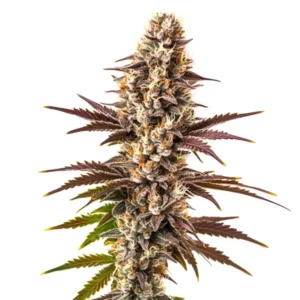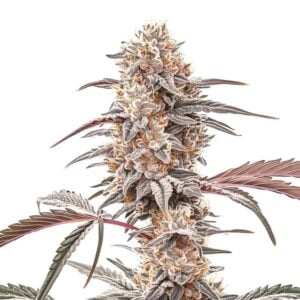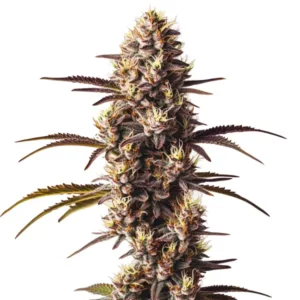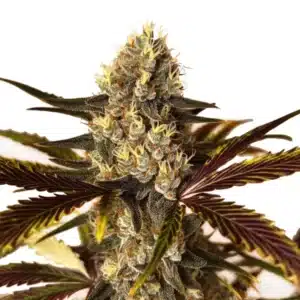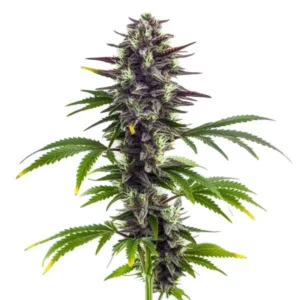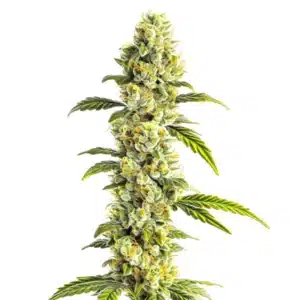
Can Cannabis Help with Dementia? Research, Strains, and Safe Use
Potential of Cannabis for Dementia
How Cannabis Interacts with the Brain in Dementia Patients
Cannabis contains compounds called cannabinoids, like THC and CBD, which interact with the brain’s endocannabinoid system can help cannabis for dementia treatment. This system plays a function in regulating mood, memory, and pain. In dementia patients, these interactions might help manage symptoms such as agitation and aggression. Researchers are investigating how these compounds influence brain function and whether they can provide long-term benefits. Studies suggest that endocannabinoid receptors could influence neuronal signaling, which might help in modulating cognitive decline.
Furthermore, cannabis may assist in managing inflammation, a significant factor in neurodegenerative diseases. Chronic brain inflammation has been linked to Alzheimer’s and other forms of dementia, and cannabinoids possess anti-inflammatory properties that could potentially slow disease progression. More research is needed, but the interaction between cannabinoids and the brain presents a fascinating area of study.
Recommended Strains
Key Cannabinoids and Their Function in Cognitive Health
THC (tetrahydrocannabinol) and CBD (cannabidiol) are two primary cannabinoids found in cannabis. THC is known for its psychoactive effects, while CBD is non-psychoactive. Some studies suggest that these cannabinoids may have neuroprotective properties, potentially slowing the progression of neurodegenerative diseases like Alzheimer’s. While initial research shows promise, more studies are needed to fully understand their impact on cognitive health.
Additionally, emerging research is looking into lesser-known cannabinoids like CBG (cannabigerol) and CBC (cannabichromene) for their potential neuroprotective benefits. These compounds could further enhance the therapeutic potential of cannabis for dementia patients. Many researchers believe that a full-spectrum cannabis extract, rather than isolated cannabinoids, might be more effective due to the entourage effect, where multiple cannabinoids work synergistically to enhance therapeutic outcomes.
Scientific Studies on Cannabis and Dementia
Research on cannabis for dementia treatment is still in its early stages. Some clinical trials have identified that cannabis can help manage behavioral symptoms in people with dementia, including agitation and aggression. However, the long-term effects and efficacy of cannabis in treating cognitive decline remain under investigation. As research continues, scientists aim to determine the best dosages, strains, and methods of consumption for dementia patients.
A number of observational studies suggest that cannabis can improve sleep patterns and reduce nighttime restlessness, which are common issues in dementia patients. This could provide relief not only for patients but also for caregivers who struggle with managing nocturnal disruptions. As clinical trials expand, further evidence will clarify how cannabis impacts both cognitive and behavioral symptoms of dementia.
Promos & Deals
Potential Benefits of Cannabis for Dementia Symptoms
Managing Agitation and Anxiety in Dementia Patients
Agitation and anxiety are common symptoms in dementia patients. Some studies have found that treatment with medical cannabis resulted in significant improvements in these neuropsychiatric symptoms. Patients treated with cannabis-based medications have reported reduced agitation, better sleep quality, and an overall improvement in their emotional state. These benefits can be particularly valuable for caregivers and family members managing dementia patients.
Moreover, CBD has been shown to have anxiolytic (anxiety-reducing) properties without causing intoxication. This makes it a potentially safer option for elderly patients who are sensitive to psychoactive effects. Using cannabis as a supplement to traditional treatments may improve the overall quality of life for dementia patients and their caregivers.

Can Cannabis Improve Memory and Cognitive Function?
The impact of cannabis on memory and cognitive function is complex. While some studies suggest potential benefits, others indicate that long-term cannabis use may be associated with memory problems. The effects may depend on the cannabinoid composition and dosage. Low doses of CBD, for instance, have been linked to improved cognitive function, while high doses of THC could have the opposite effect. More research is needed to determine the safest and most effective ways to use cannabis for cognitive support.
There is also growing interest in microdosing THC, where very small amounts are used to provide therapeutic benefits without impairing cognitive function. Some researchers believe that properly balanced cannabis use might help preserve memory rather than impair it, but more clinical trials are needed.
CBD and THC in Neuroprotection
CBD is being explored for its neuroprotective properties. Unlike THC, it does not produce psychoactive effects and has shown potential in reducing inflammation and oxidative stress in the brain. These properties could be beneficial in slowing neurodegeneration. THC, on the other hand, has been found to reduce the buildup of beta-amyloid plaques, a hallmark of Alzheimer’s disease. While both cannabinoids have potential, their effects must be carefully balanced to maximize benefits and minimize risks.
Further research is investigating how these compounds interact with other brain chemicals, such as dopamine and serotonin, which play crucial roles in mood regulation and cognitive processes. By targeting multiple pathways, cannabis may offer a more comprehensive approach to neurodegenerative disease management.
Risks and Considerations of Using Cannabis for Dementia
Possible Side Effects and Precautions
While cannabis may offer benefits, it also has potential side effects. Some patients experience dizziness, confusion, or increased heart rate after consumption. In dementia patients, these effects could exacerbate existing symptoms. Additionally, cannabis use may interact with medications commonly prescribed for dementia, making medical supervision essential. To minimize risks, patients should start with low doses and monitor their responses carefully.
Long-term effects remain an area of concern, particularly regarding dependence and cognitive impact. Ensuring responsible usage and continuous monitoring is essential for maximizing benefits while reducing risks.
Legal and Medical Considerations for Caregivers
The legal status of cannabis varies by region. Caregivers and family members should be aware of local regulations before considering cannabis treatment. In states where medical cannabis is legal, patients may need a doctor’s recommendation to access cannabis-based products. Consulting with healthcare professionals can ensure safe and legal use, as well as help determine the appropriate form and dosage for dementia treatment.
Recommended Dosages and Methods of Consumption
Finding the right dosage is crucial for effective treatment. Low doses of CBD are generally well-tolerated and may provide neuroprotective benefits, while THC should be used with caution. Methods of consumption also play a function. Tinctures and oils allow for precise dosing, while edibles provide a longer-lasting effect. Smoking or vaping may not be ideal for elderly patients due to potential lung irritation. Each patient should have a personalized approach based on their specific needs.

FAQs about Cannabis for Dementia Treatment
Can cannabis help slow the progression of dementia?
Cannabis may help slow dementia progression by reducing inflammation and oxidative stress in the brain. Certain cannabinoids, like CBD and THC, interact with the endocannabinoid system, potentially offering neuroprotective effects. While some studies suggest benefits, more research is needed to determine the long-term impact and effectiveness of cannabis for dementia treatment.
What are the best cannabis strains for dementia patients?
High-CBD strains like Charlotte’s Web, ACDC, and Harlequin are often recommended for dementia patients due to their calming and neuroprotective effects. Balanced THC/CBD strains like Cannatonic or Blue Dream may also help manage agitation and mood swings. Choosing the right strain depends on the patient’s symptoms and tolerance to cannabinoids.
Are there any risks of using cannabis for dementia?
Cannabis may cause dizziness, confusion, or increased heart rate, which could worsen dementia symptoms. High doses of THC might negatively impact memory, so careful dosing is essential. Additionally, cannabis may interact with other medications commonly prescribed for dementia patients. Always consult a healthcare professional before starting cannabis treatment.


